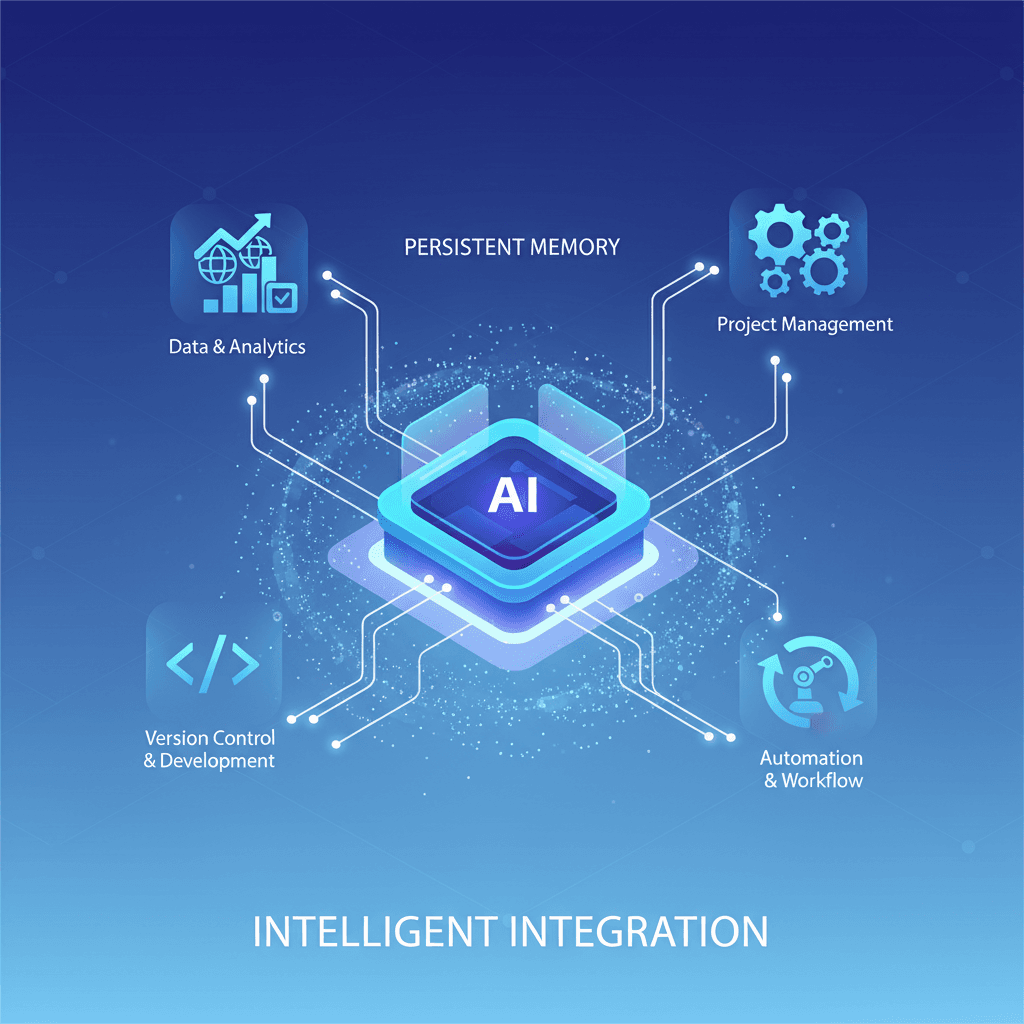Mistral Le Chat Transforms Workflows with Enterprise Integrations, Personal Memory
Le Chat gains persistent memory and deep enterprise integrations, transforming Mistral's AI into a powerful, personalized productivity hub.
September 2, 2025

In a significant move to enhance the capabilities and personalization of its AI assistant, French AI firm Mistral is rolling out two substantial updates for its "Le Chat" chatbot. The platform will now feature a persistent memory function, allowing it to retain information across conversations, and support for integrations with a wide array of enterprise and productivity tools through the Model Context Protocol (MCP). These upgrades signal Mistral's clear intention to position Le Chat as a powerful and customizable alternative in a competitive market dominated by players like OpenAI's ChatGPT, Google's Gemini, and Anthropic's Claude. The introduction of these features addresses key limitations of many current AI chatbots, paving the way for more complex, context-aware interactions and streamlined workflows for both individual and enterprise users.
The most transformative of the two updates is the integration of the Model Context Protocol (MCP), which allows Le Chat to connect and interact with external data sources and applications.[1][2] MCP functions as a universal translator, creating a standardized and secure bridge between the AI model and other software systems without the need for numerous custom integrations.[3] Mistral has announced a connector directory with over 20 platforms, enabling users to interact with tools for data analysis, software development, and productivity directly within the chat interface.[4] Supported integrations include major enterprise platforms such as Databricks, Snowflake, GitHub, Asana, Jira, Notion, and Zapier.[1][4] This allows users to perform actions like searching and summarizing data from a database, creating project tasks, or managing code repositories using natural language commands. For instance, a user could analyze customer feedback stored in Databricks, have Le Chat summarize the key points, and then automatically generate corresponding tasks in Asana, all within a single, seamless workflow.[1] By adopting this open standard, initially developed by competitor Anthropic, Mistral is not only accelerating enterprise adoption but also championing an ecosystem that avoids vendor lock-in and prioritizes interoperability.[3]
Parallel to the new integration capabilities, Mistral is introducing a "Memories" feature, designed to give Le Chat a sense of continuity and personalization.[5][6] This opt-in feature allows the chatbot to remember key details and preferences shared by the user in previous conversations, leading to more tailored and contextually relevant responses over time.[4][7] This addresses a common user frustration with stateless chatbots that require repetitive instruction. With the memory function, Le Chat can track progress toward a user's goals, provide personalized recommendations based on past preferences, and recall important facts for ongoing projects.[5] Recognizing the privacy implications of such a feature, Mistral has emphasized user control.[4] Users will be able to manage, edit, and delete stored memories.[4] This focus on data privacy is critical for building user trust, especially after the company updated its privacy policy to clarify that all users, including those on the free tier, can opt-out of having their data used to train Mistral's models, a move that aligns with GDPR principles.[8]
These dual updates represent a significant strategic push by Mistral to differentiate Le Chat in the crowded AI assistant market. While rivals have also introduced similar memory and integration features, Mistral's strategy appears to be keenly focused on the enterprise sector and the developer community.[6] The emphasis on MCP support, an open standard, aligns with Mistral's broader commitment to open-source principles, which contrasts with the more closed ecosystems of some competitors.[9] This approach could attract businesses and developers looking for more flexibility and control over their AI implementations. The ability for Le Chat to be deployed on-premises offers an additional layer of security and data sovereignty that is highly attractive to organizations in sensitive sectors like banking and defense.[10] By combining robust, enterprise-grade functionality with user-centric features like personalized memory, Mistral is aiming to create a comprehensive AI assistant that is not just a powerful tool for generating text, but an integrated hub for both personal and professional productivity.
In conclusion, the integration of MCP support and a dedicated memory feature marks a pivotal evolution for Mistral's Le Chat. The move transforms the chatbot from a standalone conversational tool into a more deeply integrated and personalized AI assistant. The support for over 20 enterprise platforms via the standardized MCP opens up a vast range of practical applications, enabling users to automate complex workflows and access external data with simple commands.[1][4] Simultaneously, the memory function promises a more intuitive and efficient user experience by retaining context and preferences across sessions.[7] As Mistral continues to build out these capabilities, its focus on open standards, enterprise security, and user control could prove to be a compelling combination, solidifying its position as a serious European contender in the global AI race.